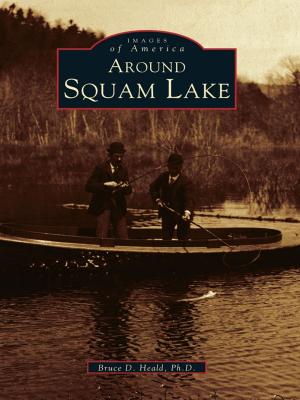| Author: | Stephen C. Morehouse, Beaverhead County Museum | ISBN: | 9781439620694 |
| Publisher: | Arcadia Publishing Inc. | Publication: | November 24, 2008 |
| Imprint: | Arcadia Publishing | Language: | English |
| Author: | Stephen C. Morehouse, Beaverhead County Museum |
| ISBN: | 9781439620694 |
| Publisher: | Arcadia Publishing Inc. |
| Publication: | November 24, 2008 |
| Imprint: | Arcadia Publishing |
| Language: | English |
Beaverhead County, located in southwest Montana, sits at the top of the Missouri River drainage. In 1805, Lewis and Clark navigated the river 20 miles south of Dillon and met peacefully with the Shoshone tribe. Settlement was sparse until the discovery of gold in 1862, when the town of Bannack sprang up overnight to become the first territorial capital. The number of towns in the county grew quickly with new discoveries of gold, silver, lead, and copper. Other settlers came to raise cattle and sheep and to cultivate hay and grain. As these new arrivals flooded the area, the resident Shoshone and Bannock tribes were displaced from their land and banished to a reservation in Idaho. The first railroad came up from Corinne, Utah, in 1880, and new communities were established along the tracks. While the mining settlements eventually declined, the rail towns survived, and today many ghost towns remain in Beaverhead County as a reminder of the not-so-distant past.
Beaverhead County, located in southwest Montana, sits at the top of the Missouri River drainage. In 1805, Lewis and Clark navigated the river 20 miles south of Dillon and met peacefully with the Shoshone tribe. Settlement was sparse until the discovery of gold in 1862, when the town of Bannack sprang up overnight to become the first territorial capital. The number of towns in the county grew quickly with new discoveries of gold, silver, lead, and copper. Other settlers came to raise cattle and sheep and to cultivate hay and grain. As these new arrivals flooded the area, the resident Shoshone and Bannock tribes were displaced from their land and banished to a reservation in Idaho. The first railroad came up from Corinne, Utah, in 1880, and new communities were established along the tracks. While the mining settlements eventually declined, the rail towns survived, and today many ghost towns remain in Beaverhead County as a reminder of the not-so-distant past.















